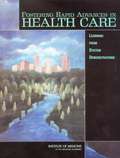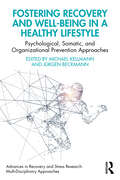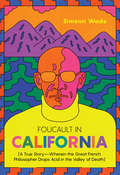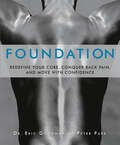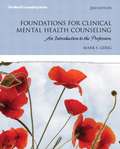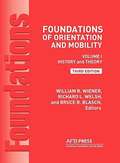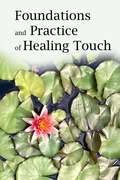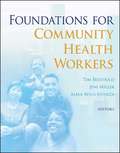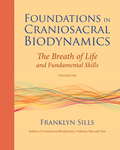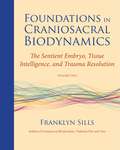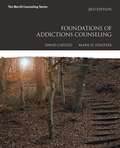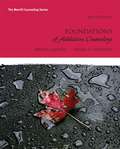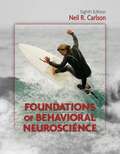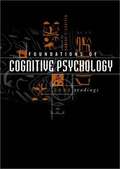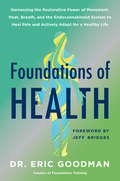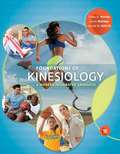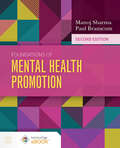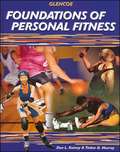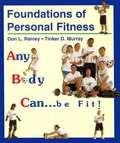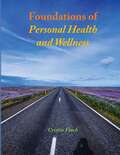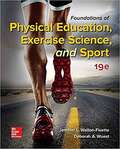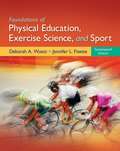- Table View
- List View
Fostering Rapid Advances in Health Care: Learning from System Demonstrations
by National Research CouncilIn response to a request from the Secretary of the Department of Health and Human Services, the Institute of Medicine convened a committee to identify possible demonstration projects that might be implemented in 2003, with the hope of yielding models for broader health system reform within a few years. The committee is recommending a substantial portfolio of demonstration projects, including chronic care and primary care demonstrations, information and communications technology infrastructure demonstrations, health insurance coverage demonstrations, and liability demonstrations. As a set, the demonstrations address key aspects of the health care delivery system and the financing and legal environment in which health care is provided.
Fostering Recovery and Well-being in a Healthy Lifestyle: Psychological, Somatic, and Organizational Prevention Approaches (Advances in Recovery and Stress Research)
by Michael Kellmann Jürgen BeckmannThis insightful book addresses recovery as a comprehensive concept for prevention of health-threats in modern societies through active lifestyles. Several areas of society are addressed, such as sports, work environments, and the military. Internationally renowned experts from different scientific disciplines present results of empirical research as well as applied intervention techniques to effectively manage stress and promote recovery in healthy lifestyles.Recognizing the systemic nature of stress and recovery is critical to designing effective interventions and policies. By promoting a balance between stress and recovery in physiological, psychological, and social terms, individuals and societies can build resilience, promote optimal well-being, and mitigate the negative effects of chronic stress. This book focuses on key research in the area of recovery and healthy living and addresses psychological, somatic and organizational prevention strategies that foster recovery and healthy lifestyles in society. It offers an expanded understanding of recovery in the health field and applies this to different areas, such as the workplace.Though written for the scientific community, the book will also benefit applied health scientists, instructors, and students, as well as readers interested in applying effective well-being and recovery techniques in their own lives.
Foucault in California: [A True Story—Wherein the Great French Philosopher Drops Acid in the Valley of Death]
by Simeon WadeIn The Lives of Michel Foucault, David Macey quotes the iconic French philosopher as speaking “nostalgically…of 'an unforgettable evening on LSD, in carefully prepared doses, in the desert night, with delicious music, [and] nice people'”. This came to pass in 1975, when Foucault spent Memorial Day weekend in Southern California at the invitation of Simeon Wade-ostensibly to guest-lecture at the Claremont Graduate School where Wade was an assistant professor, but in truth to explore what he called the Valley of Death. Led by Wade and Wade's partner Michael Stoneman, Foucault experimented with psychotropic drugs for the first time; by morning he was crying and proclaiming that he knew Truth. Foucault in California is Wade's firsthand account of that long weekend. Felicitous and often humorous prose vaults readers headlong into the erudite and subversive circles of the Claremont intelligentsia: parties in Wade's bungalow, intensive dialogues between Foucault and his disciples at a Taoist utopia in the Angeles Forest (whose denizens call Foucault “Country Joe”); and, of course, the fabled synesthetic acid trip in Death Valley, set to the strains of Bach and Stockhausen. Part search for higher consciousness, part bacchanal, this book chronicles a young man's burgeoning friendship with one of the twentieth century's greatest thinkers.
Foundation: Redefine Your Core, Conquer Back Pain, and Move with Confidence (Water Research Foundation Report Ser.)
by Peter Park Eric GoodmanA sense of fatigue dogs the fitness world. Many of the new programs that are tagged as groundbreaking are actually recycled ideas. Foundation offers something completely different for novices and athletes alike: a simple program with powerful and proven results that will remedy bad posture, alleviate back pain, and help readers break through fitness challenges and plateaus.Dr. Eric Goodman, a brilliant and dynamic young chiropractor, teams up with Peter Park, one of the top trainers in the United States, to radically redefine the core--shifting the focus from the front of the body to the back. Their groundbreaking approach works to strengthen the lower back and the full posterior chain and correct poor movement patterns by addressing mechanical imbalances and weaknesses. Foundation training involves simple movement patterns and is equipment free, creating maximum power, flexibility, and endurance.Word-of-mouth enthusiasm has inspired both Hollywood luminaries and world-class athletes to make Foundation training the core of their fitness programs. Eric and Peter's client list has grown exponentially to include Lance Armstrong, NBA star Derek Fisher, world-champion surfer Kelly Slater, and actor Matthew McConaughey.
Foundations For Clinical Mental Health Counseling: An Introduction To The Profession
by Mark S. GerigIn Gerig's Foundations for Clinical Mental Health Counseling, readers get an accurate picture of the mental health counseling profession in its contemporary environment, what the author calls a "professional view from the trenches that is academically informed." Here, future mental health counselors discover a fresh, up-to-date perspective on the profession in the book's descriptions of relevant settings, public policies, and trends that show clearly how counselors can be helpful to their clients, marketable to potential employers, relevant when communicating with stakeholders or public policy makers, and, when applicable, advocates for consumers and the profession.
Foundations Of Orientation And Mobility: Volume 1: History And Theory
by William Wiener Richard Welsh Bruce BlaschFoundations of Orientation and Mobility, the classic professional reference and textbook has been completely revised and expanded to two volumes by the most knowledgeable experts in the field. The new third edition includes both the latest research in O&M and expanded information on practice and teaching strategies. Volume 1, History and Theory, includes the bases of O&M knowledge, including perception, orientation, low vision, audition, kinesiology, psychosocial issues, and learning theories, as well as chapters on technology, dog guides, orientation aids, and environmental accessibility. A section on the profession of O&M includes its international history; administration, assessment and program planning; and a chapter on research in O&M. No O&M student or professional can afford to be without this essential resource.
Foundations and Practice of Healing Touch
by Joel G. Anderson Lisa C. Anselme Laura K. Hart<P>Healing Touch is a relaxing, nurturing, heart-centered, biofield (energy) therapy.<P> Gentle, intentional touch assists in balancing physical, mental, emotional and spiritual well-being. <P>This text serves as a thorough introduction to the foundations and practice of Healing Touch to students and novices, as well as a reference and starting point for additional study for practitioners and instructors.
Foundations for Community Health Workers
by Jennifer Miller Tim Berthold Alma Avila BertholdFoundations for Community Health Workers Foundations for Community Health Workers is a training resource for client- and community-centered public health practitioners, with an emphasis on promoting health equality. Based on City College of San Francisco's CHW Certificate Program, it begins with an overview of the historic and political context informing the practice of community health workers. The second section of the book addresses core competencies for working with individual clients, such as behavior change counseling and case management, and practitioner development topics such as ethics, stress management, and conflict resolution. The book's final section covers skills for practice at the group and community levels, such as conducting health outreach and facilitating community organizing and advocacy. Praise for Foundations for Community Health Workers "This book is the first of its kind: a manual of core competencies and curricula for training community health workers. Covering topics from health inequalities to patient-centered counseling, this book is a tremendous resource for both scholars of and practitioners in the field of community-based medicine. It also marks a great step forward in any setting, rich or poor, in which it is imperative to reduce health disparities and promote genuine health and well-being. " -Paul E. Farmer, MD. , PhD, Maude and Lillian Presley Professor of Social Medicine in the Department of Global Health and Social Medicine at Harvard Medical School; founding director, Partners In Health. "This book is based on the contributions of experienced CHWs and advocates of the field. I am confident that it will serve as an inspiration for many CHW training programs. " -Yvonne Lacey, CHW, former coordinator, Black Infant Health Program, City of Berkeley Health Department; former chair, CHW Special Interest Group for the APHA. "This book masterfully integrates the knowledge, skills, and abilities required of a CHW through storytelling and real life case examples. This simple and elegant approach brings to life the intricacies of the work and espouses the spirit of the role that is so critical to eliminating disparities-a true model educational approach to emulate. " -Gayle Tang, MSN, RN. , director, National Linguistic and Cultural Programs, National Diversity, Kaiser Permanente "Finally, we have a competency-based textbook for community health worker education-well informed by seasoned CHWs themselves as well as expert contributors. " -Donald E. Proulx, CHW National Education Collaborative, University of Arizona
Foundations in Craniosacral Biodynamics, Volume One
by Franklyn Sills Michael Kern Dominique DegrangesBiodynamic Craniosacral Therapy (BCST) is commonly seen as the spiritual approach to craniosacral therapy (CST); in fact, BCST as taught by Franklyn Sills, the pioneer in the field, is quite different from conventional CST. Biodynamic work is based on the development of perceptual skills where the practitioner learns to become sensitive to subtle respiratory motions called primary respiration and also to the power of spontaneous healing. Through the Breath of Life, which, Sills asserts, echoes the Holy Spirit in the Judeo-Christian tradition, bodhicitta in Buddhism, and the Tai Chi in Taoism, students of BCST learn to enter a state of presence oriented to the client's inherent ability to heal.In Foundations in Craniosacral Biodynamics, Sills offers students and practitioners an in-depth, step-by-step guide to the development of perceptual and clinical skills with specific clinical exercises and explorations to help students and practitioners learn the essentials of a biodynamic approach. Individual chapters cover such topics as holism and biodynamics; mid-tide, Long Tide, Dynamic Stillness and stillpoint process; the motility of tissues and the central nervous system; transference and the shadow; shamanistic resonances; and more.From the Trade Paperback edition.
Foundations in Craniosacral Biodynamics, Volume One
by Franklyn Sills Michael Kern Dominique DegrangesBiodynamic Craniosacral Therapy (BCST) is commonly seen as the spiritual approach to craniosacral therapy (CST); in fact, BCST as taught by Franklyn Sills, the pioneer in the field, is quite different from conventional CST. Biodynamic work is based on the development of perceptual skills where the practitioner learns to become sensitive to subtle respiratory motions called primary respiration and also to the power of spontaneous healing. Through the Breath of Life, which, Sills asserts, echoes the Holy Spirit in the Judeo-Christian tradition, bodhicitta in Buddhism, and the Tai Chi in Taoism, students of BCST learn to enter a state of presence oriented to the client's inherent ability to heal.In Foundations in Craniosacral Biodynamics, Sills offers students and practitioners an in-depth, step-by-step guide to the development of perceptual and clinical skills with specific clinical exercises and explorations to help students and practitioners learn the essentials of a biodynamic approach. Individual chapters cover such topics as holism and biodynamics; mid-tide, Long Tide, Dynamic Stillness and stillpoint process; the motility of tissues and the central nervous system; transference and the shadow; shamanistic resonances; and more.From the Trade Paperback edition.
Foundations in Craniosacral Biodynamics, Volume Two: The Sentient Embryo, Tissue Intelligence, and Trauma Resolution
by Franklyn Sills Dominique Degranges Cherionna Menzam-SillsFoundations in Craniosacral Biodynamics presents a comprehensive grounding in the clinical skills needed in a biodynamic approach to craniosacral therapy. Author Franklyn Sills places particular emphasis on developing what he terms "perceptual skills," diagnostic skills that enable the practitioner to perceive the subtle sensations and intuitive insights that are the groundwork of most forms of holistic somatic therapy.The biodynamic approach has its origins in the clinical exploration of W. G. Sutherland, DO, (1873-1954), the founder of osteopathy in the cranial field and "forefather of craniosacral therapy." In the last ten years of his life, his work changed from a biomechanical approach to a fully holistic orientation toward the ordering and enlivening forces present in the human system. Sutherland described his experiences of a mysterious presence, the "Breath of Life," from which ordering forces and healing intentions arose. His work then shifted from biomechanics to biodynamics; from analysis and motion-testing to an appreciation of the unfolding of the "inherent treatment plan." Sutherland encouraged practitioners to use no outside force whatsoever, but to allow the inherent ordering forces, which he called "potency," to make the decisions and do the work.Franklyn Sills pioneered the biodynamic approach to craniosacral therapy outside the osteopathic profession. This approach has now spread around the world in various forms. Sills wrote the early books in this field, and this new book now brings the text up to date. Foundations in Craniosacral Therapy, Volume Two expands on the work described in the previous volume, starting with an overview of a biodynamic approach to craniosacral therapy, which emphasizes the suspensory nature of the human system. Here we review and deepen our understanding of the "three bodies"--the physical, fluid, and tidal bodies. We also review and expand upon the suspensory nature of the holistic shift--the physical body suspended in the fluid body, in turn suspended in the tidal body--within the context of the inherent treatment plan.The following chapters of the book orient to our earliest life experiences--the embryonic period and the pre- and perinatal experience--with chapters devoted to birth, birth dynamics, and craniosacral approaches oriented both to birth trauma and to the tissue patterns it generates. Here we orient to the prenate and birthing infant as a sentient being having and responding to life experience. Further chapters orient to the primal/notochord midline and the tissue structures that form around it. We explore the dynamics of the pelvis, vertebral axis, cranial base, face and hard palate. Volume Two finishes with four important chapters on the neurophysiology of stress and trauma and related craniosacral and verbal skills. All chapters include appropriate biodynamic approaches to traumatization and CNS activation.From the Trade Paperback edition.
Foundations of Addictions Counseling (3rd Edition)
by David Capuzzi Mark D. StaufferA practical collection of tools and strategies for prospective addictions counselors that includes a solid foundation of research, theory, and history . Practical and comprehensive, Foundations of Addiction Counseling explores an array of techniques and skills that a new practitioner will need in the real world while providing a thorough review of the research, theory, and history of addiction counseling. With chapters written by expert scholars, this text covers many topics in-depth often ignored by other comparable books, such as professional issues in addictions counseling, the assessment of client strengths, gender issues in substance abuse, working in rehabilitation centers, and working with clients with disabilities. Also available with MyCounselingLab® This title is also available with MyCounselingLab--an online homework, tutorial, and assessment program designed to work with the text to engage students and improve results. Within its structured environment, students see key concepts demonstrated through video clips, practice what they learn, test their understanding, and receive feedback to guide their learning and ensure they master key learning outcomes.
Foundations of Addictions Counseling (Second Edition)
by David Capuzzi Mark D. StaufferA practical collection of tools and strategies for prospective addictions counselors that includes a solid foundation of research, theory, and history. Practical and comprehensive,Foundations of Addiction Counseling explores an array of techniques and skills that a new practitioner will need in the real world while providing a thorough review of the research, theory, and history of addiction counseling. With chapters written by expert scholars, this text covers many topics in-depth often ignored by other comparable books, such as professional issues in addictions counseling, the assessment of client strengths, gender issues in substance abuse, working in rehabilitation centers, and working with clients with disabilities. The second edition of this unique text offers prospective counselors the tools and strategies they will need for working with general and special populations, including assessment tools, strategies for outpatient and inpatient treatment, information about maintenance and relapse prevention, and counseling strategies for couples, families, children, adolescents, college students, and recovering addicts. The revised edition includes expanded discussions on a number of topics, new case studies, and completely updated resources and web references.
Foundations of Behavioral Neuroscience (Eighth Edition)
by Neil R. Carlson'Foundations of Behavioral Neuroscience' offers a briefer, sixteen chapter introduction to the foundations of physiology, incorporating the latest studies and research in the rapidly changing fields of neuroscience and physiological psychology.
Foundations of Cognitive Psychology: Core Readings
by Daniel J. LevitinScientists from many disciplines, including physics, chemistry, biology, and neuroscience, contribute to the study of cognition. Cognitive psychology, the science of the human mind and of how people process information, is at the core of empirical investigations into the nature of mind and thought. This anthology is based on the assumption that cognitive psychology is at heart empirical philosophy. Many of the core questions about thought, language, perception, memory, and knowledge of other people's minds were for centuries the domain of philosophy. The book begins with the philosophical foundations of inquiry into the nature of mind and thought, in particular the writings of Descartes, and then covers the principal topics of cognitive psychology including memory, attention, and decision making. The book organizes a daunting amount of information, underlining the essentials, while also introducing readers to the ambiguities and controversies of research. It is arranged thematically and includes many topics not typically taught in cognition courses, including human factors and ergonomics, evolutionary psychology, music cognition, and experimental design. The contributors include Daniel Dennett, Daniel Kahneman, Jay McClelland, Donald Norman, Michael Posner, Stephen Palmer, Eleanor Rosch, John Searle, Roger Shepard, and Anne Treisman.
Foundations of Epidemiology
by Marit L. BovbjergUnderstanding human health-defined by the World Health Organization (WHO) as a “state of complete physical, mental, and social well-being, and not merely the absence of disease or infirmity”i —is vital. Why are these people sick but those people aren’t? What can we do to improve health for everyone? Improved health in turn leads to gains in economic, social, educational, and other arenas, all of which are necessary for a successful, functioning society. Unfortunately, to understand human health, we must study humans—and humans are extremely difficult to study. Unlike laboratory-based sciences, where all conditions are under the control of the scientist, conducting scientific studies with human participants includes a host of complications and potential stumbling blocks. First and foremost, humans do not exist in controlled settings like laboratories. Each person has their own job, their own preferred foods, their own sleep schedule, their own hobbies, their own genetics, their own stress levels, their own set of environmental and social settings—all of which affect health. Since no two people are exactly alike, and since we cannot really tell people what to do, studying them is difficult.
Foundations of Health: Harnessing the Restorative Power of Movement, Heat, Breath, and the Endocannabinoid System to Heal Pain and Actively Adapt for a Healthy Life
by Eric GoodmanThe Founder of the proven Foundation Training program takes his teaching to the next phase, showing us how to utilize our body’s built-in systems for healing and introducing a new program that offers a perpetual inner core of wellness and adaptability.Dr. Eric Goodman’s innovative approach to self-healing—Foundation Training—has helped athletes, first responders, celebrities, and regular folks around the world. The heart of Foundation Training is a unique form of biomechanics—a series of postures, poses, and movements designed to teach the body’s individual muscles to act within strong, flexible chains, shifting the burden of support away from sensitive joints.Foundations of Health builds on this core program, going deep into its principles to help us understand how to maintain a healthy body, even when the mechanics eventually break down. Our bodies are built to heal themselves—without surgeries and prescriptive medications. The protocols expand on the original Foundation Training concepts, focusing on the endogenous cannabinoid stimulators—part of an extraordinary built-in endocannabinoid system that profoundly affects our central, enteric, and peripheral nervous systems and helps to regulate numerous responses in our body.Dr. Goodman explains the science behind the endogenous cannabinoid system and how it can be stimulated in natural and healthy ways, including heat, breath work, and movement—techniques that will help guide and maintain the state of balance the body needs to function optimally with stability and harmony. He recommends foods, herbs, and supplements likely to ease pain, lower stress, and boost mental and physical function. He addresses the notable medicinal benefits of CBD, THC, and the many terpenes associated with cannabis’s reputation for healing, and teaches how to be a smart consumer of cannabinoids.Foundations of Health provides a unique understanding and approach to healing that will forever change the way we think of our bodies and our physical health.
Foundations of Kinesiology: A Modern Integrated Approach
by Tinker D. Murray James A. Eldridge Harold W. KohlFoundations of Kinesiology: A Modern Integrated Approach helps you to explore your career options and sharpen your professional skills. The text focuses on physical activity as the center of the Kinesiology universe. It emphasizes the evolving and ever-changing career opportunities available working with individuals and populations across the lifespan--children, adolescents, adults and older adults--and in a variety of settings, including work, leisure, transportation, home, schools, sport, fitness facilities and rehabilitation centers. It equips you with a solid foundation in basic Kinesiology and helps you develop the skills you need for a career in personal training, occupational and physical therapy, athletic training, sports psychology or sports management.
Foundations of Kinesiology: Studying Human Movement and Health (Second Edition)
by Peter KlavoraFOUNDATIONS OF KINESIOLOGY (2nd ed.) is a textbook designed for senior high school and introductory college and university programs in kinesiology, physical education, and exercise science. The book explores the multifaceted world of kinesiology: the study of human movement and the body s response to exercise. It examines the systems, factors, and principles involved in human development within the context of society. Relevant fields in the study of kinesiology include anatomy, physiology, biomechanics, nutrition, motor learning and control, and sport psychology, sociology, and philosophy. The relevant career options available to students in the field are also examined.
Foundations of Mental Health Promotion
by Manoj Sharma Paul BranscumWritten for undergraduate and graduate courses in public and community health, the second edition of Foundations of Mental Health Promotion provides a current look at mental health and mental illness with a focus on medical, epidemiological, behavioral, sociological, political, historical, developmental, and cultural perspectives in the field. Readers are introduced to the field of mental health promotion, and both individual-level and population-level approaches to handling mental health concerns are emphasized.
Foundations of Personal Fitness
by Don L. Rainey Tinker D. MurrayEach Active Mind--Active Body feature provides an opportunity that lets you investigate an important concept for improving your fitness. Follow the steps under What Will Do to get started and summarize your experience in Apply and Conclude.
Foundations of Personal Fitness: Any Body Can... Be Fit!
by Don L. Rainey Tinker D. MurrayThe book discusses the foundations of physical fitness, the benefits of regular exercise, and the advantages of weight training and proper nutrition.
Foundations of Personal Health and Wellness
by Cristin FinchFoundations of Personal Health and Wellness provides a broad range of evidence-based health information spanning the dimensions of health. The text supports individuals in creating and working toward their personal goals by providing opportunities to explore individual values and priorities with assessments that provide the basis for a future vision. There are multiple points of engagement that allow the reader to move forward and apply evidence-based material to individual goals.
Foundations of Physical Education, Exercise Science, and Sport
by Deborah A. Wuest Jennifer L. Walton-FisetteThe Nineteenth Edition of Foundations of Physical Education, Exercise Science, and Sport emphasizes the role of culturally competent professionals in meeting the needs of our increasingly diverse population and in promoting lifespan participation in physical activity for all people. Up-to-date statistics and information are provided on health and physical activity levels, career preparation and professional paths within physical education, exercise science, and sport. <p><p>This edition retains its strong coverage of the foundations of motor behavior, biomechanics, exercise physiology, sport and exercise psychology, the sociology of sport, and physical education pedagogy. The text also emphasizes preparation for a diversity of careers in a variety of settings, addressing areas that include teaching, coaching, exercise leadership, athletic and personal training, sport management, and sport media.
Foundations of Physical Education, Exercise Science, and Sport 17th Edition
by Deborah A. Wuest Jennifer FisetteIntegrating the traditional presentation of the nature, scope, philosophy, and history of physical education and sport with the growing career opportunities available within this dynamic field, this text addresses the challenges and the future of the discipline. It emphasizes preparation for a diversity of careers, addressing areas such as teaching, coaching, exercise leadership, athletic and personal training, sport management, and sport media.
